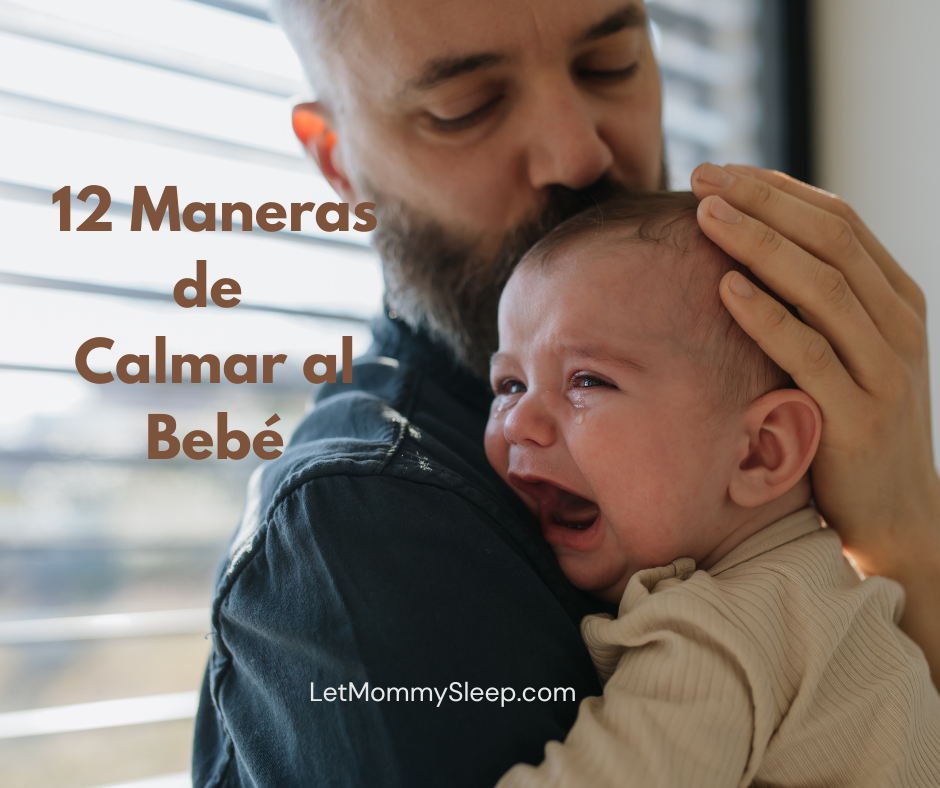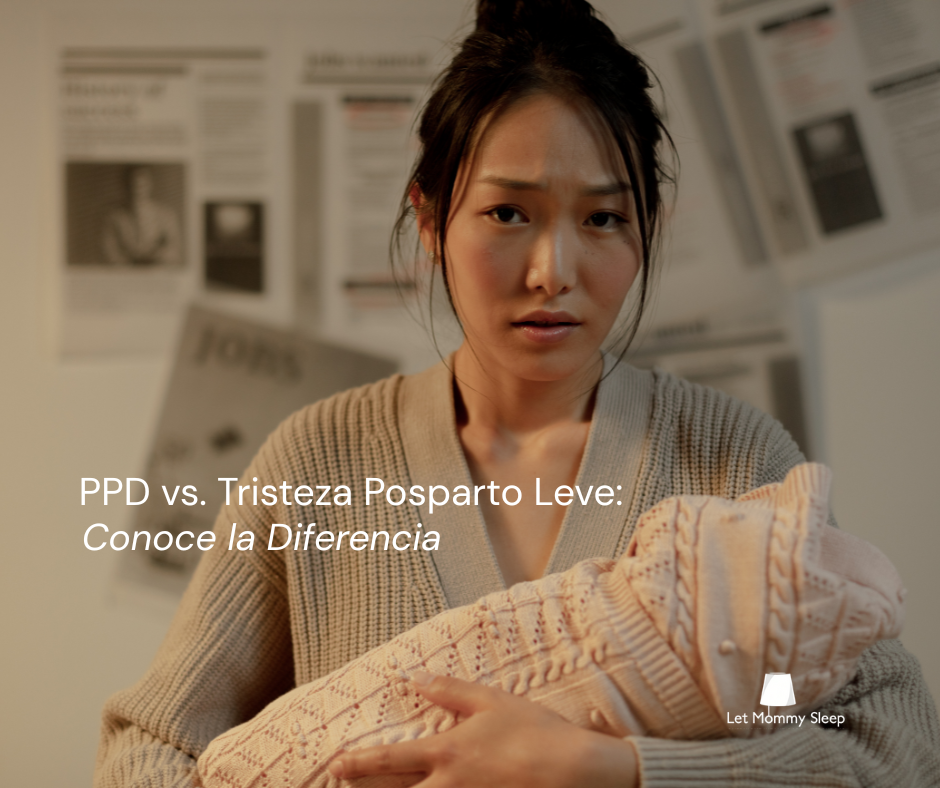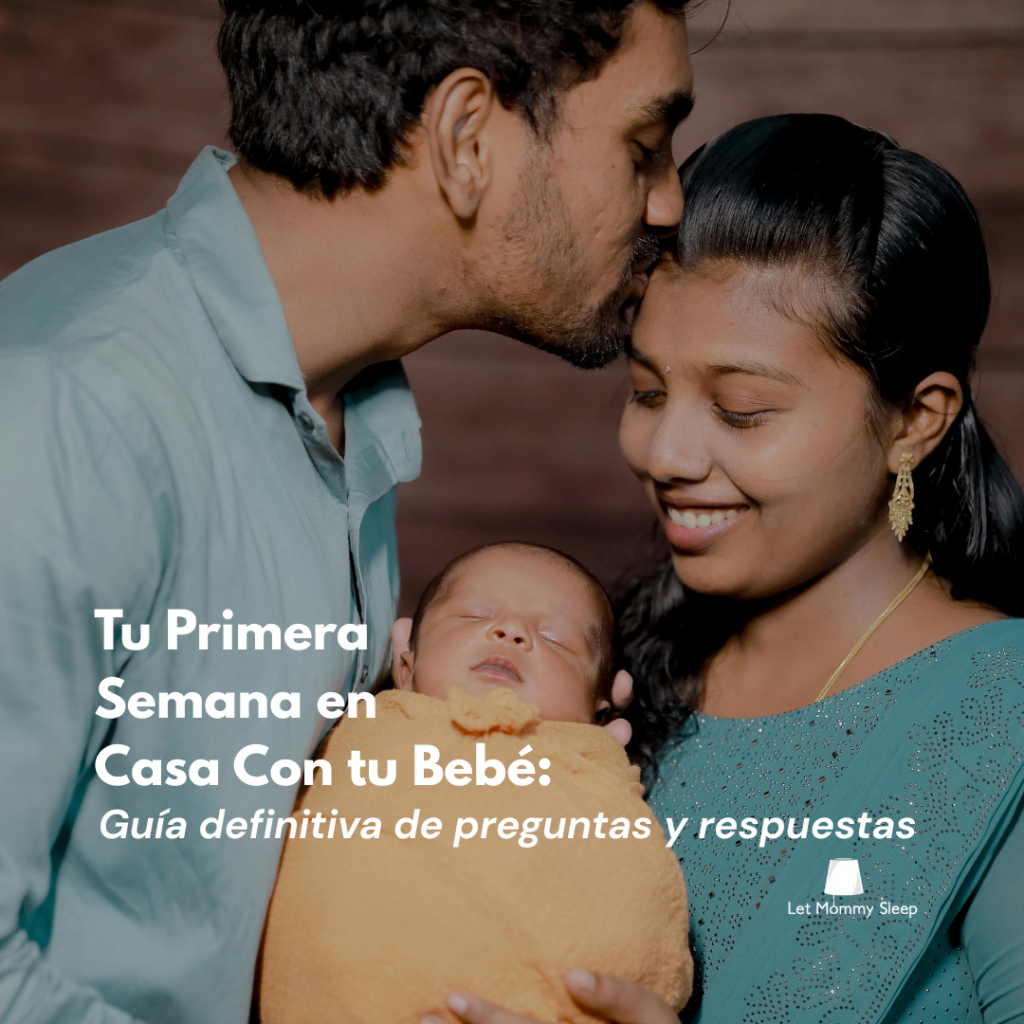Overnight newborn care is often misunderstood. It makes sense because there are so many terms for this type of support from newborn care specialist to night nanny to baby nurse. The term “postpartum doula” has also only recently become widely used. Parents also hear conflicting stories: some say night nannies sleep when the baby sleeps, while others hear about “awake care” being the norm but costing more. And while there are many private certification programs, there is still no licensing body in the newborn care industry. This blog serves to help in debunking common myths about night doulas.
We’ve supported thousands of families here at Let Mommy Sleep and our newborn care curriculum has been used by public school systems, pediatricians and nanny agencies since 2010. We’d like to help clear up some misconceptions and show what professional overnight care really looks like.

Myth #1: A Night Doula is a “Stranger”
Truth: Many parents dismiss the idea of a night doula by saying, “I could never let a stranger take care of my baby overnight!” This is a natural instinct but parents should know that they will receive their caregivers photo, profile, references, background check and phone number even before care begins. Then there are many conversations and chances for the families and doula to get to know each other. This process still happens even if care is scheduled on short notice. Additionally caregivers document all important details of baby’s night and stay in communication with parents even when they’re “off the clock.”
Why it matters: Parents get genuine rest and peace of mind knowing their newborn is in the care of someone they trust. You can use the questions in What Should I ask a Night Nurse? if you’re considering overnight care.
Myth #2: Night Nurses are Medical Professionals
Truth: “Nurse” is a legally protected title and should only be used by the following: Registered Nurses (RN), Licensed Practical Nurses (LPN), Licensed Vocational Nurses (LVN) or Certified Nurse Midwives (CNM). In the past, the terms Night Nurse and Baby Nurse were commonly used to describe non-clinical caregivers but this is no longer the norm. Night nannies are certified newborn care specialists or postpartum doulas, who are not performing providing medical level care. If a baby has medical requirements such as feeding tubes, chronic conditions or doctor-prescribed care, a Nurse should be hired.
Why it matters: Families should understand the legal scope of care and make informed decisions about when medical oversight is needed. be par
Myth #3: Overnight care interferes with bonding
Truth: Night nannies do not replace parents. They ensure parents are physically and emotionally present to be parents, giving them the sleep and recovery time necessary to be emotionally present with their newborn and to maintain meaningful connection with their older children. Overnight care has positive effects on the health and attachment of the entire family.
Why it matters: Sleep deprivation after birth is linked to higher rates of postpartum mood disorders, delayed physical healing and impaired decision-making. Well-rested parents interact more positively with their newborns, are more responsive to feeding cues and have the bandwidth to nurture their older children as well.
Myth #4: There’s No Point in Having a Night Doula if You’re Breastfeeding
Truth: A night nanny brings the baby to you to nurse and then does all the diaper changes and soothing baby back to sleep. If you’re pumping, the night doula also cleans and sterilizes the pump and organizes and stores the milk. This saves parents 1-3 hours of sleep per night. You can check the math in Breastfeeding? Yes You Get More Sleep with a Night Nanny
Why it matters: Parents should know that babies do a lot more than just nurse at the breast overnight! They still need their diapers changed, sometimes a clothing or sheet change and need to be soothed back to sleep. By staying in bed, nursing moms and parents also have a chance of getting themselves back to sleep quicker after being awake to feed.
Parents should also know that having a night doula does not automatically mean they need to give formula.
Myth #5: Night nannies are a luxury only for wealthy families
Truth: It’s true that most non-medical overnight care is paid out-of-pocket and it is not cheap. However, coverage options are expanding. Some insurers reimburse postpartum doula services, employers include care in benefits and platforms like BabyList allow families to fund services through registries. Let Mommy Sleep also offers financing options. You can learn about pay-over-time and other options in How to Get Insurance to Cover my Night Nanny or Doula
Why it matters: Access to professional support is increasingly realistic for families with diverse financial situations. Learn about bringing postpartum care to your company here: Postpartum Employee Benefits: Positive Disruption at Work
Debunking Common Myths About Night Doulas – What Overnight Newborn Care Really Looks Like
A trained night nanny or postpartum doula provides:
- Hands-on care: Feeding, burping, diapering soothing and keeping living spaces organized and clean
- Sleep support: One of our most FAQ is “can you help my baby sleep through the night”? We help establish safe sleep routines and healthy night patterns so that sleeping through the night is a natural next step for infants.
- Breastfeeding assistance: Bringing baby in to parents for nursing session, doing all post-feed care and cleaning and sterilizing pump parts and bottles.
- Documentation: Logging feeds, diaper changes and sleep in LMS Live, other apps or pen and paper.
- Guidance & reassurance: Offering evidence-based advice, emotional support and further resources to parents
When Families Benefit Most
Overnight support is especially valuable for:
- Birth mothers and parents recovering from c-section or complicated birth
- Families with twins or premature infants
- Those who are returning to work soon after birth
- Parents experiencing postpartum anxiety or depression
- Parents whose own families and friends are far away or unable to offer support
The Let Mommy Sleep Standard
Founded by a mother who personally navigated traumatic birth and postpartum struggles, Let Mommy Sleep provides experienced and trained caregivers who follow evidence-based safe sleep, lactation, and newborn care practices. Families can trust that overnight care is professional, safe and designed to help both parents and baby thrive. You can look up newborn and postpartum care credentials in Introducing the National NAPS Registry for Night Doulas.
Should I Hire a Night Nanny?
Night nannies do far more than “help with the baby.” They provide safe, evidence-based overnight care that improves parental health, infant safety and family confidence. By debunking myths, parents can make informed, empowered decisions about overnight newborn support.
Learn more about the role and credentials of overnight newborn caregivers in What Is a Night Nanny?
FAQs – Debunking Common Myths About Night Doulas
Q1: Do night nannies sleep while the baby sleeps?
Not usually. They remain awake to anticipate feedings, do diaper changes and soothe the baby, ensuring parents get uninterrupted sleep. While a night nanny may nap when baby is safely asleep, it is not expected that families provide a bed or bedroom.
Q2: Are night nannies nurses?
No. Night Nannies are certified newborn care specialists and postpartum doulas. Nurses -RNs, LPNs and LVNs – are used when there is medical need.
Q3: Does overnight care reduce bonding?
Rested parents bond better with their newborn, each other and their older kids. Night nannies provide care so parents can be fully present during the day.
Q4: Is overnight care only for wealthy families?
No. Financing options, insurance coverage, corporate benefits and baby registries make care more accessible than ever.
Q5: How do I know what a night nanny will actually do overnight?
Ask about feeding, sleep and diapering routines; documentation practices; and training or certification.




